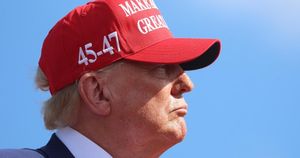The Reserve Bank of India (RBI) Governor Shaktikanta Das was hospitalized on Tuesday at Apollo Hospital, Chennai, due to health concerns. Sources close to the situation revealed he experienced acidity issues, prompting his admission for observation. While the details surrounding his condition remain minimal, the central bank confirmed he is under careful monitoring with no immediate threats to his health.
According to reports from various news agencies, Das is doing well and is expected to be discharged within the next couple of hours. An RBI spokesperson stated, "Reserve Bank of India Governor Shri Shaktikanta Das experienced acidity and was admitted to Apollo Hospital, Chennai for observation. He is now doing fine and will be discharged shortly, within the next 2-3 hours." This statement has alleviated concerns surrounding his health.
This incident surfaces at a busy time for the RBI, especially as the governor has been deeply involved with recent monetary policy decisions impacting India’s economy. Governor Das has led the RBI's strategies through tumultuous economic conditions, responding tactically to inflation and growth concerns, making his well-being particularly significant to stakeholders across financial sectors.
Das's tenure as the RBI governor has been marked by significant challenges, including the COVID-19 pandemic's economic impacts and various global financial uncertainties. He has been recognized for his leadership and diligence during trying times, underlining the importance of maintaining stability within India’s financial sectors.
Hospitalization of high-profile figures, such as the RBI governor, often leads to heightened media scrutiny and public interest, as the governor's role is pivotal during economic fluctuations. Financial analysts and market participants have been closely watching developments, assessing how his health might impact upcoming policy announcements. The RBI has typically responded to market crises with agility, but Governor Das's leadership approach has lent significant assurance to both local and international investors.
Following the announcement of Das's hospitalization, the stock markets displayed some immediate reactions, but experts advise observing longer-term trends rather than reacting impulsively to such news. The RBI has managed to place emphasis on stabilizing inflation rates and fostering growth, ensuring economic resilience. Governor Das's proactive inclination toward transparency and economic reform has built trust among market players, making updates on his condition of considerable interest.
The public sentiment revolves around hope for Das's swift recovery, coupled with thoughtful reflections on the role of leadership within India's financial framework. His contributions during crises are viewed critically, and many stakeholders resonate with the idea of steady governance and its contribution to socio-economic stability.
Officials representing the RBI have refrained from providing detailed disclosures about the governor's health condition, maintaining his privacy and the hospital's discretion about patient information. Even as speculation may arise concerning the possible ramifications of his hospitalization on economic strategies, immediate priorities focus on his recovery and return to official duties.
This incident has rekindled discussions about health and fitness among leaders in high-pressure roles, reminding the public and officials alike of the necessity of maintaining personal health amid the demands of office. The financial community remains vigilant, awaiting any updates on both Das's health as well as forthcoming RBI announcements, as they directly influence market behavior and economic outlook.



